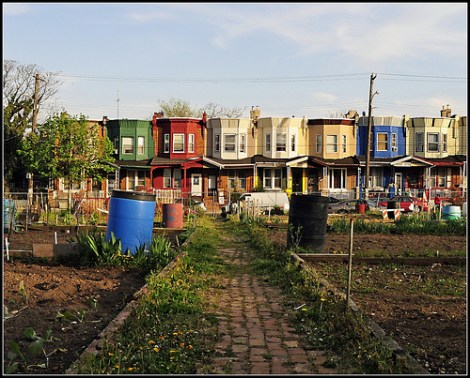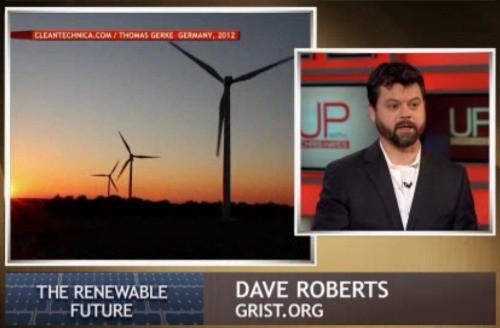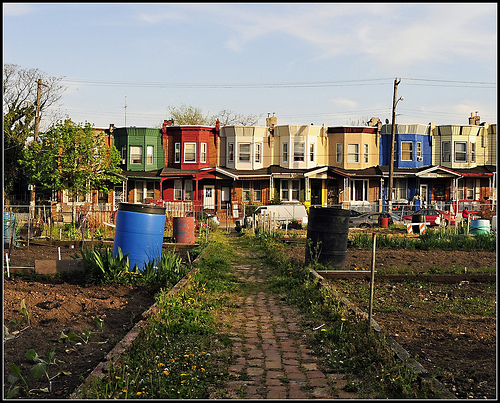It’s been a banner year for urbanism in the City of Brotherly Love.

A West Philadelphia project led The New York Times’ piece on brownfields redevelopment today, and a new report released this week finds that the city’s community development corporations are cleaning up blight, rehabbing houses, and adding millions to Philadelphia’s tax base.
Yesterday, Philadelphia Mayor Michael Nutter (D) officially launched a city Office of New Urban Mechanics dedicated to city innovation and problem-solving. “New Urban Mechanics will have the flexibility to experiment, the ability to re-invent public-private partnerships and the strategic vision to create real change for Philadelphia. I am excited to establish the Office of New Urban Mechanics as a civic innovation tool for urban transformation,” Nutter said in a statement.
Like a lot of “urban innovation” initiatives these days, that is really vague! It could encompass everything from apps for tracking and fixing potholes to brainstorming around some of Philadelphia’s big projects still in the works.
One big project: a bike share! Philadelphia wants to get one rolling. From the local CBS affiliate:
The city envisions getting a business plan together by next spring, then selecting a vendor, with the first bikes hitting the streets in 2014.
“We will need $3 million of city capital money,” says deputy mayor for transportation Rina Cutler, “then we hope to raise an additional five or six million in federal, state, and private funds.” …
Cutler says they’re still working out how users will pay for the bicycles. Credit or debit cards might ensure that the bikes don’t get stolen, but she says they also want to figure out a cash model or cell-phone technology for payment that shows up on your phone bill, so they don’t eliminate low-income users.
Or the office could help set up a new city land bank to fight blight and grow Philadelphia’s urban core. In October, the Pennsylvania state legislature passed a bill paving the way for a Philly land bank. A recent surge in demand for central city housing has motivated the city — with its 40,000 vacant lots — to establish the bank. But there’s no telling yet if the bank will give preference to big developers or small nonprofits, or put everyone on a level playing field.
Things are looking great for Philadelphia! Except maybe (maybe!) when it comes to the city’s burgeoning urban agriculture scene. This summer, the city approved new zoning rules that acknowledge upwards of 350 community gardens and farms spread across 753 different parcels. From Next American City:
Recognizing urban agriculture as a legal land use category helps bolster support for its practice. [Allison Blansfield, farm manager at The Enterprise Center,] says that the real evidence that the zoning code works better is that more problems don’t come up. According to Amy Laura Cahn of the Public Interest Law Center, cultivated vacant parcels are no longer just vacant lots, but are now legally recognized as urban agriculture.
This represents a major shift in the dialogue on vacant lands. Cahn notes that on the whole, the new code is a very positive step, with details needing to be ironed out over the next year of implementation.
But of course, issues remain.
Obtaining permits to build necessary garden infrastructure like retaining walls and fences is still really difficult, and new pending amendments to the code might undo much of this year’s progress and jeopardize more than a fifth of the city’s already-operating farms and gardens.
As it relates to urban agriculture, the changes would outlaw community gardening and urban farming in areas designated commercial mixed use, i.e. commercial corridors … The new code that had made it simpler for gardeners and farmers to be in compliance might now have the barriers built back in.
Come on, Philly — adding extra red tape for urban farmers is not innovative at all. Dig in, get your hands dirty, and please come back with something besides more apps. Please.




